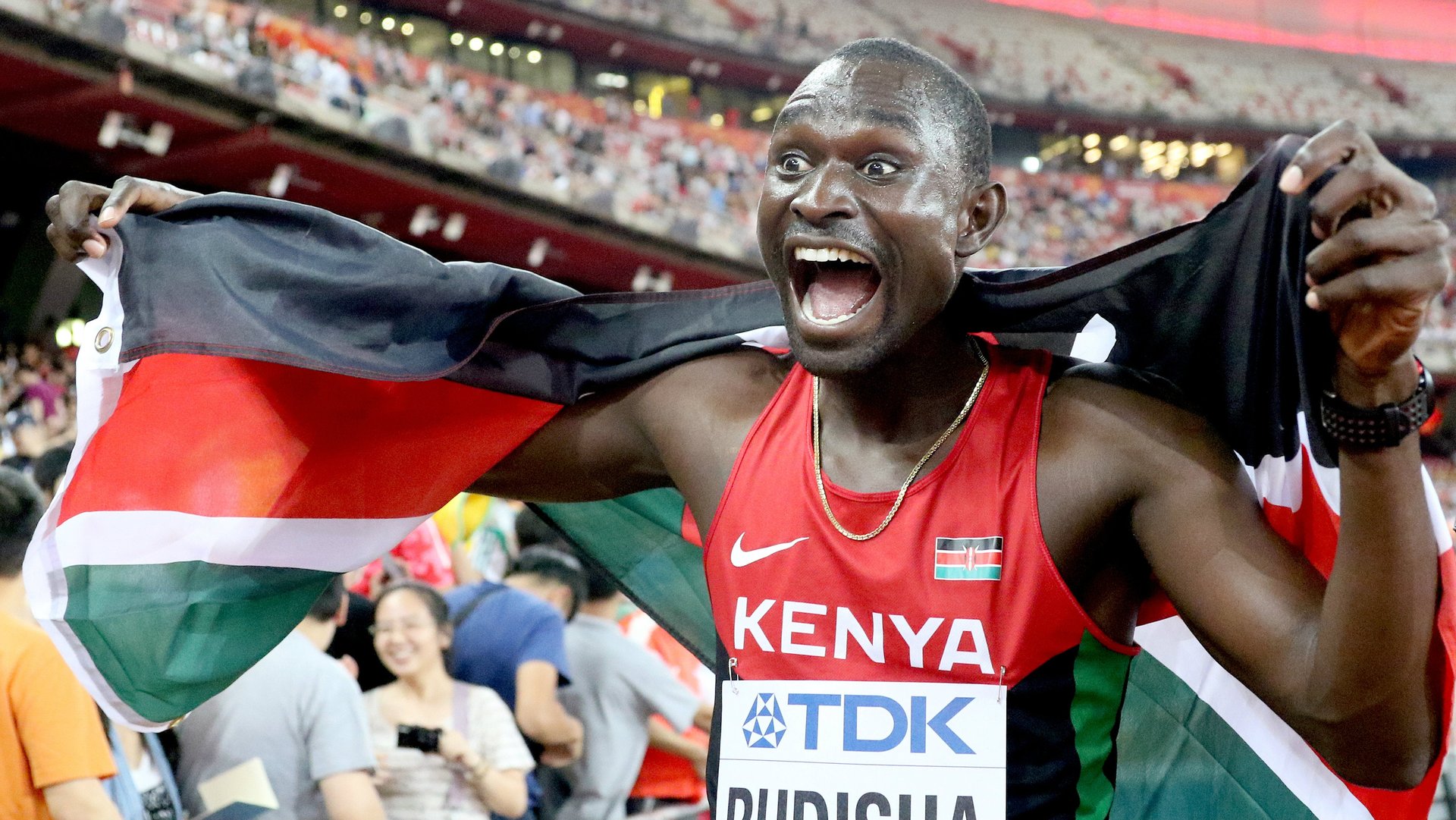Here’s why Kenya keeps dominating the world of athletics
Kenya is on top of the world. As the world athletics championships wrapped up in Beijing on Sunday (August 30th), Kenyan athletes managed to top the overall winners table with a total of 16 medals: seven gold, six silver and three bronze.


Kenya is on top of the world. As the world athletics championships wrapped up in Beijing on Sunday (August 30th), Kenyan athletes managed to top the overall winners table with a total of 16 medals: seven gold, six silver and three bronze.
Kenya is renowned for producing some of the world’s top track stars. Just four years ago, also at the World Championships in South Korea, it finished third behind the mighty Americans and Russia. At the Boston Marathon, for example, Kenyan athletes are so dominant that the race is now jokingly referred to as the “Kenyan Intramural Championships.”
Talented athletes have always emerged from Africa. But no other nation on the continent has been able to match Kenya’s consistent ability to produce champions year in, year out.
Theories abound as to why this is the case. Some argue genetics is a factor. Others say a lot of runners hail from the Rift Valley, a part of the country with high altitude, and this gives the athletes an edge.
“It is a system of excellence in athletics that has been copied the world over,” the sports writer and film-maker Jackie Lebo told Quartz in an interview. “It’s developed through the early sports officers in the 50s, 60s. It led to the breakthrough Olympics in 1968.”
The memorable moment Lebo is referring to is the 1,500m race that was won by Kipchoge Keino, who reportedly overcame a bladder infection to secure gold at the Mexico games.
“A good system that scouts athletes from primary and secondary schools all the way to clubs,” has allowed Kenya to consistently produce great runners, Tanzanian Filbert Bayi, the former 1,500m world record holder, told Quartz.
This approach means runners have an institutional structure they can plug into as they come up in the sport. “In Tanzania, the government does not respect [athletes] and does not help them. And young athletes see this and are discouraged,” Bayi, who also won a silver medal in the 3000m steeplechase at the Moscow Olympics, says.
The combination of high altitude, optimal conditions and what Lebo calls “the big global economy of running” has inspired Kenyan athletes to become the best in the world.
Professionally motivated
The British World and Olympic champion Mo Farah tells the story of the dedication he witnessed when, as a mediocre runner, he decided to train with Kenyan athletes.”To see them just eat, sleep and train and nothing else was a big shock for me,” he said.
This level of professionalism and intense hard work is what distinguishes Kenyan athletes from their competitors. Kenyan runners are managed by the same kind of people who manage the careers of Usain Bolt and Mo Farah. “If this is something you are doing and are managed by high level people, it means you are competing at the highest level,” says Lebo. “That’s a big motivating factor. You have a chance to be the best in the world and that’s what you become.”
The level of professionalism in the sport has become so entrenched, that these athletes are now able to transcend the inadequacies of Athletics Kenya (AK), the sports governing body. In fact, AK reportedly lost sponsorship deals in March this year, with funders saying the disorganization at the athletic governing body the main reason for pulling out.
“I don’t consider them a huge contributing factor to the success of these athletes,” says Lebo of AK. “These people are already professionals. So when the international competitions come around, they are going to do well, because they are already doing well in their careers.”
And with high schools encouraging athletics, and the economic potential that young athletes see in the sport, that’s encouraging professionalism in Kenya. “Imagine a kid who knows that running can make you a $1 million a year,” Lebo says to Quartz. “It’s a huge motivating factor.”